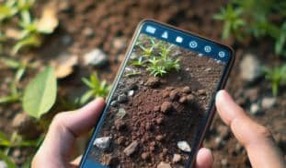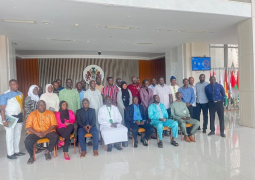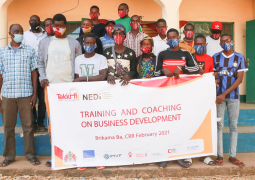
The project is aimed to revolutionise Agriculture and soil health management in the country through use of AI.
The project, officials went on, is aimed to democratise access to soil analysis by using a machine-learning model capable of predicting soil pH from photos, accessible to anyone with a smartphone.
This new initiative, they added, will also involve the use of artificial intelligence (AI) in order to analyse soil pH through smartphone cameras.
The initiative, they said, would enable a quick, easy, and inexpensive soil data collection, empowering individuals in regions lacking laboratory facilities to assess soil health effectively.
Ebrima Jarra, the executive director of Soil Solution, said: “The democratization of soil analysis through accessible technologies like smartphone-based AI tools is a ground-breaking step towards empowering farmers and researchers in regions with limited laboratory infrastructure.”
The initiative, he continued, also aligns with The Soil Solution’s mission to provide innovative, affordable, and sustainable solutions for soil health monitoring.
“By integrating such advancements, we can accelerate efforts to restore degraded lands and improve agricultural productivity across the country and beyond,” he added
Andy Blunk, an advocate for decentralising applied agricultural research from the University of DC, spoke at length on the significance of the project, adding: “I support the use of inexpensive hand-held devices, simple data collection tools, and farmer education with a view to enhance agricultural communities’ ability to respond to ever-changing challenges.”
“Therefore, this project represents a significant step towards using technology to address critical agricultural needs. By using AI and accessible tools, it has the potential to transform soil health monitoring and agricultural productivity, particularly in regions with less resources,” he postulated.




